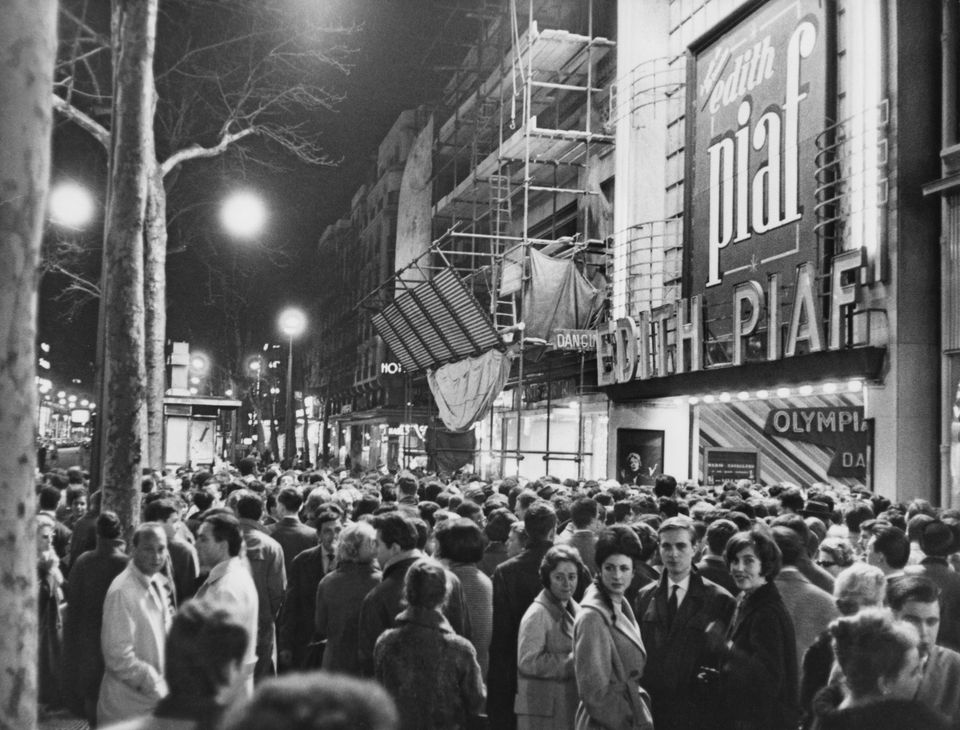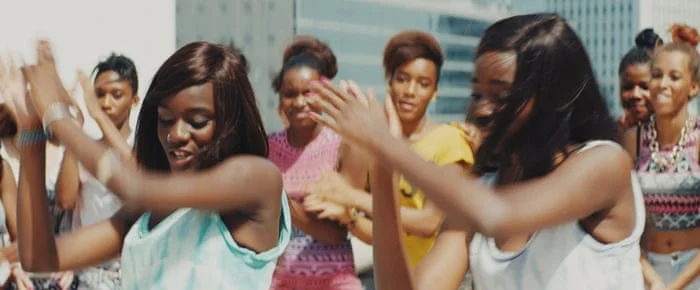By The Landlord
“He who contemplates the depths of Paris is seized with vertigo. Nothing is more fantastic. Nothing is more tragic. Nothing is more sublime.” – Victor Hugo
“If you are lucky enough to have lived in Paris as a young man, then wherever you go for the rest of your life, it stays with you, for Paris is a moveable feast.” – Ernest Hemingway
“Cities have sexes: London is a man, Paris a woman, and New York a well-adjusted transsexual.” – Angela Carter
Like all the great cities, Paris can mean all things to all people. My own experience of it is brief, crazy and dirty. That sounds more exciting than it really is. It includes sleeping on a pavement in a sleeping bag outside Gare Du Nord, not as a homeless person or recreating some form of George Orwell journalism, but as a teenager living off a fiver a day on one of those month-long Interrail trips, awaiting an early train which was a main form of accommodation, and all the while encountering street-life in all its less than glamorous glory, including on that occasion, meeting two blokes from Aberdeen on their way to join the French Foreign Legion. Of course, like many others, I’ve visited Paris for weekend breaks via the Eurostar, done all the tourist spots, from the Eiffel Tower to Notre Dame, sat for hours in cafés – a favourite pastime – and made work trips, but its romance and allure still remains a slight mystery. That, I hope this week, will be ignited into excitement and revelation through the prism of song.
What is Paris? In song, or any other genre, the French capital does seem to be associated with style, glamour, romance and sex. “Even the pigeons are dancing, kissing, going in circles, mounting each other. Paris is the city of love, even for the birds,” wrote Samantha Schutz in her book I Don't Want To Be Crazy. But is that a bit of a cliché? Paris may be sexy and glamorous, particularly in the spring, but isn’t it also grand and crumbling, busy, shambolic and rude? But more than that, it appears to be a place for creativity and inspiration. So many artists have lived there in their early careers, and now our very own Bar du Chansons is full of punters taking coffee and cognac to tell us more about their sublime time there.
“America is my country and Paris is my hometown,” says Gertrude Stein.
“April in Paris, chestnuts in blossom, holiday tables under the trees,” says E.Y. Harburg.
“An artist has no home in Europe except in Paris,” says Friedrich Nietzsche.
“Paris is a place where, for me, just walking down a street that I've never been down before is like going to a movie or something. Just wandering the city is entertainment,” says the film director Wes Anderson.
There seems to be something particularly inspirational about the city’s streets. In her book The Streets of Paris: A Guide to the City of Light Following in the Footsteps of Famous Parisians Throughout History, Susan Cahill explains this in more detail:
“‘Beauty is in the streets,’ they say in Paris. We travellers know our favourites, Parisians know theirs. Jean Genet liked to stand with his friend Giacometti at the foot of rue Oberkampf, taking in its long uphill from the Marais to Belleville. Simone Weil loved walking the quays of Île Saint-Louis in her native river city. The scruffy streets of the ninth were François Truffaut’s muse and mother. As cities evolve and erupt, streets change; Parisians come and go. But the beauty remains.”
There’s more to Paris than Eiffel Tower
Clearly there is a lot more to Paris if you spend time and live there, taking in its true culture, sights, sounds and smells. “It took me some years to clear my head of what Paris wanted me to admire about it, and to notice what I preferred instead. Not power-ridden monuments, but individual buildings which tell a quieter story: the artist's studio, or the Belle Epoque house built by a forgotten financier for a just-remembered courtesan, says the writer Julian Barnes.
Even the struggling, depressed genius Vincent Van Gogh found it inspiration: “There is but one Paris and however hard living may be here, and if it became worse and harder even—the French air clears up the brain and does good—a world of good.”
“To study in Paris is to be born in Paris!” wrote Victor Hugo in Les Misérables, and it has certainly left an impression on many. That probably includes Patti Smith is here. She spent the late 1960s living in Paris as a wannabe artist, drawing and sketching, forming her ideas before she returned to New York. “Since childhood, it was my dream to go where all the poets and artists had been. Rimbaud, Artaud, Brancusi, Camus, Picasso, Bresson, Goddard, Jeanne Moreau, Juliette Greco, everybody – Paris for me was a Mecca.”
The pull of Piaf
The Who’s Pete Townshend even had Parisian plans: “I bought a Dutch barge and turned it into a recording studio. My plan was to go to Paris and record rolling down the Seine.”
Malcolm McLaren however did not have so much time for the place. “The thing about Paris, it's a great city for wandering around and buying shoes and nursing a cafe au lait for hours on end and pretending you're Baudelaire. But it's not a city where you can work,” he says with a shrug and a snarl.
Of course 1960s Paris wasn’t all about sitting in cafés being creative. Parisians may be romantic, but they also know how to riot in more than early punk style. The 1968 student riots set a standard for social unrest and protest few can match, including the more recent yellow-vested types, copycated by ham-faced right-wing racists in the UK.
So Paris is as much about grit as glamour. It certainly is also a place for discussion, argument and expression, intellectuals as well as shallow showiness. But Paris is very much about performance and appearance - looking good, expressing yourself with style, dressing and eating well. In many ways it is an early blueprint for Hollywood. “In Paris, everybody wants to be an actor; nobody is content to be a spectator,” says Jean Cocteau.
Emile Zola seems to agree: “In Paris, everything's for sale: wise virgins, foolish virgins, truth and lies, tears and smiles.”
Paris is a fashion mecca too. “I'd always been extremely fascinated by the French Nuit Blanche, which is a weekend that they have in Paris where they keep all the museums open until dawn. You can go and hang out in Versailles in the middle of the night and watch the sun come up, “ says Anna Wintour. Paris drew models and artists of all types from Toulouse-Lautrec to Grace Jones. Paris is the Folies Bergère and the Champs Elysées, the city of passion and expression of Edith Piaf and Josephine Baker.
Not tonight Josephine? Definitely tonight Josephine Baker.
For centuries Paris was the city and cultural centre of the western world. French was the language of European royal courts. “When Paris sneezes, Europe catches cold,” wrote Klemens von Metternich. And Americans absolutely love Paris. ““The best of America drifts to Paris. The American in Paris is the best American. It is more fun for an intelligent person to live in an intelligent country. France has the only two things toward which we drift as we grow older—intelligence and good manners.” wrote F. Scott Fitzgerald. Jack Kerouac was also entranced by it, comparing it far more glamorously than the British capital: ““Paris is a woman but London is an independent man puffing his pipe in a pub.”
But film has also reflected Paris as having many different sides. Has it always been glamorous? Less so in those film depictions of Victor Hugo’s The Hunchback of Notre Dame, including memorable performances by Lon Chaney (1923) and Charles Laughton (1939):
Ugly beautiful. Paris isn’t always glamorous. Charles Laughton in Hunchback of Notre Dame (1939)
Patrick Süskind’s novel, Perfume: The Story Of A Murder, is a work of extraordinary descriptive colour, telling the life of 18th-century orphan Jean-Baptiste Grenouille, genius of odour and eventual psychopath, born in a fish market, he becomes Paris’s leading perfumier who gains an unhealthy obsession to create the finest bottled essence through his unparalleled Mozart-memory nose. Paris of the time is a place of enormous pungency – of cheese and piss, rotting fish, wine and orange blossom, all brought to life in beautiful writing. The film version doesn’t capture it but does include an extraordinary denouement on the power of smell to change human behaviour:
A far more glamorised version of Paris, set at the turn of the century, is portrayed in the extraordinarily stylish but saccharine, and frankly sexist, and at times rather dubious Gigi (1958), which won multiple Oscars, juggling a vibrant young Leslie Caron alongside that dirty old dog, Maurice Chevalier. Thank heaven for little girls, eh? Ironic? I’m not so sure.
There’s also 1972’s Last Tango In Paris of course, with that groping growler Marlon Brando reaching for the butter with Maria Scheider, but perhaps two of the more potent films about Paris from the past 20 years give a different kind of grit in the vaseline. Paris isn’t just about posh white people looking to get off with each other. The suburbs, especially, are full of other people, working class, black, Asian, and Arabic in ethnicity. La Haine, from 1996, reflects a much more hard-hitting gang culture on housing projects. Paris is as much about other cultures and styles from hip hop and dance music as it is about romantic chanson.
Mathieu Kassovitz’s La Haine (1996)
And Girlhood (Band des Filles) for example, is a brilliant 2014 film about four black girls who get involved or try to escape from gang culture.
Girlhood (Band des Filles)
But of course Paris is perhaps most potent of all in the memory of Rick and Lisa in Casablanca, trying to capture that old romance in a far-off place under trying circumstances, and leading to that classic line:
So then, we’ll also always have Paris here at the … Bar Du Chansons. But how Paris expressed in song? Please place your Parisian-inspired songs in comments below. They should ideally do far more than mention the place in passing, but get to the heart of it. This week’s Parisian president no doubt has plenty of knowledge of of the place from his native Belgium. Who? I’m delighted to say, we welcome back to the chair, avec le retour supreme du swawilg! Magnifique! Deadline is this coming 11pm UK time or earlier if required, for playlists published on Wednesday. Allez!
New to comment? It is quick and easy. You just need to login to Disqus once. All is explained i in About/FAQs ...
Fancy a turn behind the pumps at The Song Bar? Care to choose a playlist from songs nominated and write something about it? Then feel free to contact The Song Bar here, or try the usual email address. Also please follow us social media: Song Bar Twitter, Song Bar Facebook. Song Bar YouTube. Subscribe, follow and share.







